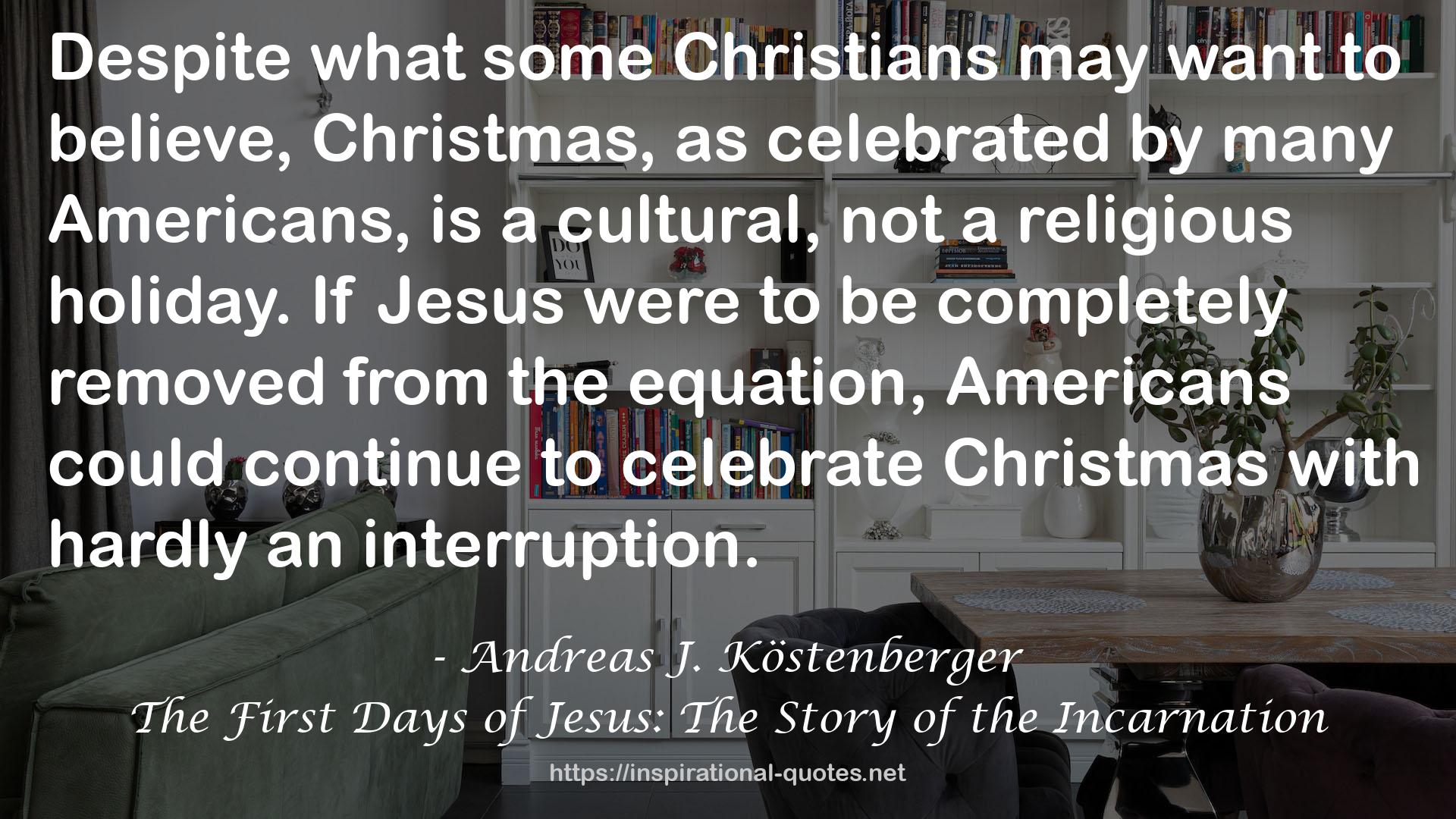7
" The narrative pushes us, its readers, to consider our response to Jesus. With whom are you identifying, Herod or the magoi? Take care not to answer too quickly. Herod would have self-identified as a religiously observant Jew. He consistently presented himself in this way and viewed his project to rebuild the temple as a powerful example of his commitment to Israel’s God.28 (See again the drawings of Herod’s temple on the insert following page 64.) He intensified his guilt, however, by using Scripture to locate the child. This act confirmed his knowledge that he was setting himself against God and his purposes in order to maintain his own rule and dynasty. His knowledge of God and Scripture led him not to submission and worship; instead, he prized self-preservation and self-rule above anything else, even God. He would not bow to the authority of a different Judean king, whether that king had God’s approval or not. Herod chose resistance and opposition to Jesus and God’s plan. Herod powerfully illustrates the fact that it’s not enough to identify outwardly with God’s people. It’s not enough to give sacrificially of your funds and energy to build God’s house (or temple) and to help others worship. It’s not enough to learn about God and his plan through his Scriptures. Every one of us is confronted daily with a choice of our will: Whom will we serve? For whom will we live? This is not the kind of decision that can be made once and for all (“I gave my life to God when I was a child”) or that can be determined by past or even present performance (“I have gone to church every Sunday for the last twenty years and regularly give money to the church”). It’s the kind of decision we must make afresh every day, and that entails more (but not less) than mere outward actions. For whom are you living today? "
― Andreas J. Köstenberger , The First Days of Jesus: The Story of the Incarnation
12
" The messianic Son had finally been born, but the setting of the birth gives Luke’s readers the first real hint that this King may not fit everyone’s expectations. We will come back to this issue of expectations later, but for now it is worth reflecting on our expectations of God, his character, and his actions. Wrong expectations are a key source of disillusionment and disappointment. A cynical person might argue that we should never expect anything from anyone in order to avoid being let down. Such an approach to people and God, however, will surely lead to a bitter and lonely life. We need each other, and we need God. What happens, then, when God fails to meet our expectations or to act in the way that we thought, hoped, and prayed that he would? In such instances, we need to reevaluate our expectations to make sure they align with the promises of God. God has not promised us that we will be free from all sickness and have lots of money in this lifetime. He has not promised that bad things will not happen to good people. He has not promised that we and our loved ones will never die. In this present age life is fatal; no one gets out alive. He has promised that he will be with us no matter what and that nothing can ever separate us from his love.34 He has promised that resurrection will triumph over death and that there will be a future day when he will personally wipe every tear from every eye and remove sickness and death from his creation forever.35 We will not always understand why things happen, but we can trust that God will fulfill his promises. He is faithful.36 "
― Andreas J. Köstenberger , The First Days of Jesus: The Story of the Incarnation

